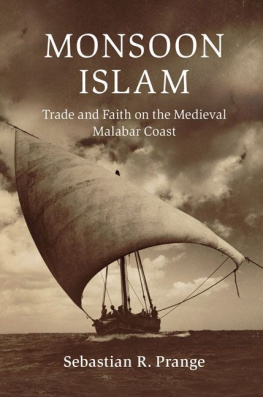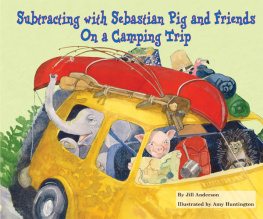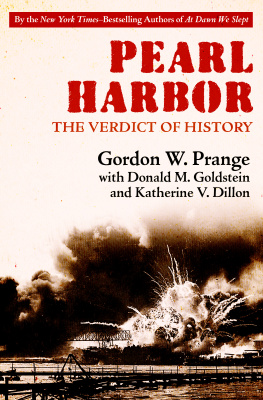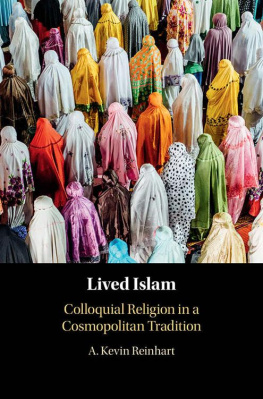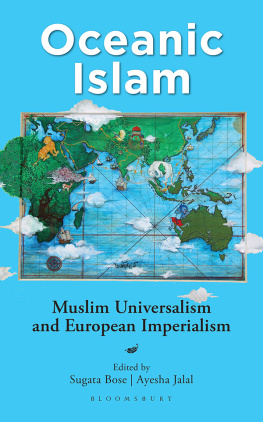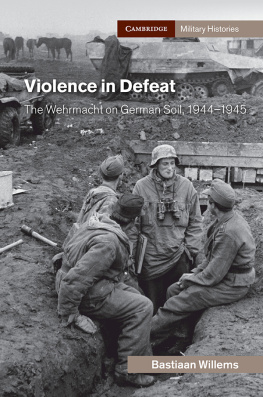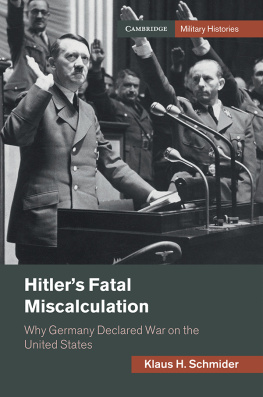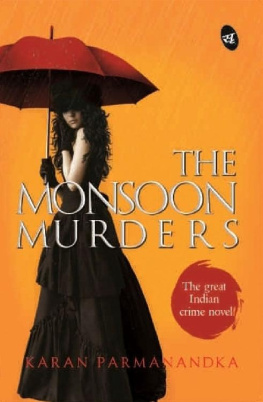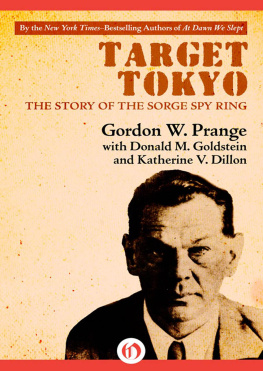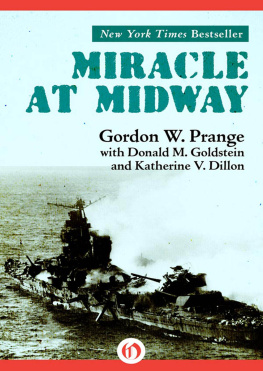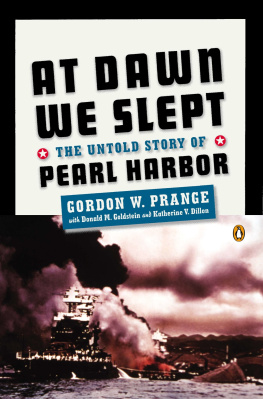Sebastian R. Prange - Monsoon Islam (Cambridge Oceanic Histories)
Here you can read online Sebastian R. Prange - Monsoon Islam (Cambridge Oceanic Histories) full text of the book (entire story) in english for free. Download pdf and epub, get meaning, cover and reviews about this ebook. year: 2018, publisher: Cambridge University Press, genre: Politics. Description of the work, (preface) as well as reviews are available. Best literature library LitArk.com created for fans of good reading and offers a wide selection of genres:
Romance novel
Science fiction
Adventure
Detective
Science
History
Home and family
Prose
Art
Politics
Computer
Non-fiction
Religion
Business
Children
Humor
Choose a favorite category and find really read worthwhile books. Enjoy immersion in the world of imagination, feel the emotions of the characters or learn something new for yourself, make an fascinating discovery.
- Book:Monsoon Islam (Cambridge Oceanic Histories)
- Author:
- Publisher:Cambridge University Press
- Genre:
- Year:2018
- Rating:3 / 5
- Favourites:Add to favourites
- Your mark:
- 60
- 1
- 2
- 3
- 4
- 5
Monsoon Islam (Cambridge Oceanic Histories): summary, description and annotation
We offer to read an annotation, description, summary or preface (depends on what the author of the book "Monsoon Islam (Cambridge Oceanic Histories)" wrote himself). If you haven't found the necessary information about the book — write in the comments, we will try to find it.
Monsoon Islam (Cambridge Oceanic Histories) — read online for free the complete book (whole text) full work
Below is the text of the book, divided by pages. System saving the place of the last page read, allows you to conveniently read the book "Monsoon Islam (Cambridge Oceanic Histories)" online for free, without having to search again every time where you left off. Put a bookmark, and you can go to the page where you finished reading at any time.
Font size:
Interval:
Bookmark:
Monsoon Islam
Trade and Faith on the Medieval Malabar Coast
Between the twelfth and sixteenth centuries, a distinct form of Islamic thought and practice developed among Muslim trading communities of the Indian Ocean. Sebastian Prange argues that this Monsoon Islam was shaped by merchants not sultans, forged by commercial imperatives rather than in battle, and defined by the reality of Muslims living within non-Muslim societies. Focusing on Indias Malabar Coast, the much-fabled land of pepper, Prange provides a case study of how Monsoon Islam developed in response to concrete economic, socio-religious, and political challenges. Because communities of Muslim merchants across the Indian Ocean were part of shared commercial, scholarly, and political networks, developments on the Malabar Coast illustrate a broader, trans-oceanic history of the evolution of Islam across monsoon Asia. This history is told through four spaces that are examined in their physical manifestations as well as symbolic meanings: the Port, the Mosque, the Palace, and the Sea.
Sebastian R. Prange is Assistant Professor of History at the University of British Columbia.
David Armitage
Alison Bashford
Sujit Sivasundaram
Across the world, historians have taken an oceanic turn. New maritime histories offer fresh approaches to the study of global regions, and to long-distance and long-term connections. Cambridge Oceanic Histories includes studies across whole oceans (the Pacific, the Indian, the Atlantic) and particular seas (among them, the Mediterranean, the Caribbean, the North Sea, the Black Sea). The series is global in geography, ecumenical in historical method, and wide in temporal coverage, intended as a key repository for the most innovative transnational and world histories over the longue dure. It brings maritime history into productive conversation with other strands of historical research, including environmental history, legal history, intellectual history, labour history, cultural history, economic history and the history of science and technology. The editors invite studies that analyse the human and natural history of the worlds oceans and seas from anywhere on the globe and from any and all historical periods.
Monsoon Islam
Trade and Faith on the Medieval Malabar Coast
Sebastian R. Prange
University of British Columbia, Vancouver


University Printing House, Cambridge CB2 8BS, United Kingdom
One Liberty Plaza, 20th Floor, New York, NY 10006, USA
477 Williamstown Road, Port Melbourne, VIC 3207, Australia
314321, 3rd Floor, Plot 3, Splendor Forum, Jasola District Centre, New Delhi 110025, India
79 Anson Road, #06-04/06, Singapore 079906
Cambridge University Press is part of the University of Cambridge.
It furthers the Universitys mission by disseminating knowledge in the pursuit of education, learning, and research at the highest international levels of excellence.
www.cambridge.org
Information on this title: www.cambridge.org/9781108424387
DOI: 10.1017/9781108334860
Sebastian R. Prange 2018
This publication is in copyright. Subject to statutory exception and to the provisions of relevant collective licensing agreements, no reproduction of any part may take place without the written permission of Cambridge University Press.
First published 2018
Printed in the United Kingdom by Clays, St Ives plc
A catalogue record for this publication is available from the British Library.
Library of Congress Cataloging-in-Publication Data
Names: Prange, Sebastian R., author.
Title: Monsoon Islam : trade and faith on the medieval Malabar Coast / Sebastian R. Prange, University of British Columbia, Vancouver.
Description: New York : Cambridge University Press, 2018. | Series: Cambridge oceanic histories | Includes bibliographical references and index.
Identifiers: LCCN 2018000016 | ISBN 9781108424387 (hardback)
Subjects: LCSH: Islam India Malabar Coast History. | Malabar Coast (India) Commerce History.
Classification: LCC BP63.I42 P73 2018 | DDC 297.0954/83dc23
LC record available at https://lccn.loc.gov/2018000016
ISBN 978-1-108-42438-7 Hardback
Cambridge University Press has no responsibility for the persistence or accuracy of URLs for external or third-party internet websites referred to in this publication and does not guarantee that any content on such websites is, or will remain, accurate or appropriate.
For
Tara,
my reason why.
The history of Monsoon Islam is about the tension between global impulses and local exigencies. Something similar may be said about the writing of this book, which required me to combine the study of distant places with the need to negotiate frequent changes to my own immediate environs, institutional and otherwise.
The long ontogenesis of this work, spanning well over a decade from conception to completion, has allowed me to reflect on its implications, pursue various tangents, and test its findings in front of diverse audiences. I have found it especially rewarding to situate this work within not just one but several vibrant fields of historical enquiry. These include major ones such as the scholarship on medieval South India, the Indian Ocean, or global Islam, but also more specialized domains such as the study of Indo-Islamic architecture, Rasulid manuscripts, or piracy. The contours of these fields have repeatedly shifted under my feet as I researched, wrote, and revised this book. I am certain that the scholarly landscape will continue to evolve and hopeful that this study itself will help displace a mound or two.
The empirical foundations of this book were laid during my doctoral studies at the University of Londons School of Oriental and African Studies. It is only with the passage of time that I have come to recognize how many of what I thought of as my ideas had been discreetly instilled in me by my advisor, Daud Ali. The other members of my committee, William Gervase Clarence-Smith and Avril Powell, were likewise active participants in (what I thought of as) my work. My studies at SOAS, including multiple stays in Yemen and India for language training and fieldwork, were generously supported by the British Academy, the Arts and Humanities Research Council, the Institute of Historical Research, the University of London, and the Leigh Douglas Memorial Fund. I am also grateful to the International Economic History Association for recognizing my doctoral research with its triennial prize for best dissertation on a premodern topic (20082011), an honour all the more gratifying since my work in many ways challenges the primacy of an economic history lens for understanding the nature of premodern trade.
Fieldwork in Yemen and India would not have been possible without help by many individuals. The officers of the British Archaeological Mission in Yemen were instrumental in securing an otherwise elusive research permit. In Sanaa, I was welcomed by Tim Mackintosh-Smith as well as the Centre Franais dArchologie et de Sciences Sociales de Sanaa. In Hadhramawt, I was splendidly hosted by Hassan al-Amr and received magnanimous support from the curators of the Maktabat al-Aqf and Markaz al-Nr (Dr al-Muaf) archives. Amn Bhir provided crucial assistance to my survey of local manuscripts. In Kerala, my requests to examine inscriptions and manuscripts at mosques and shrines were, to the great credit of their custodians and congregations, approved bar only one exception. I particularly benefitted from my extended period of study at the shrine of Zayn al-Dn Makhdm in Kochi, and the information provided by its caretaker, the late Mohammed Abdul Latheef. In Kozhikode, Hamza and Muhsin Bahfaqy and S.M. Jiffri Thangal went to great lengths to facilitate my research, not least by seeking out a number of Arabic genealogies. Although in the end these materials did not speak to the particular concerns of this study, it is hoped that in future they will receive the scholarly attention they merit.
Font size:
Interval:
Bookmark:
Similar books «Monsoon Islam (Cambridge Oceanic Histories)»
Look at similar books to Monsoon Islam (Cambridge Oceanic Histories). We have selected literature similar in name and meaning in the hope of providing readers with more options to find new, interesting, not yet read works.
Discussion, reviews of the book Monsoon Islam (Cambridge Oceanic Histories) and just readers' own opinions. Leave your comments, write what you think about the work, its meaning or the main characters. Specify what exactly you liked and what you didn't like, and why you think so.

